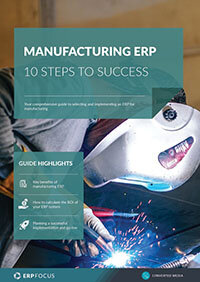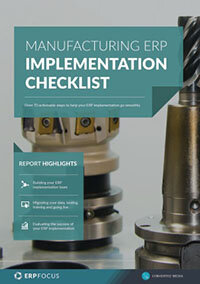ERP for make-to-order manufacturing
Make-to-order (MTO) manufacturing is a very common form of manufacturing (interchangeable with build-to-order).
One business assembles, fabricates, mixes, or otherwise produces a specific item for sale to another entity. One order might be a set of horseshoes for an animal. Another order could be a multi-million-dollar production of a nuclear submarine to be delivered to the navy in four years.
There is a specific item to be produced and delivered in an agreed-upon quantity at a certain time. Production begins when the order is placed by a customer and accepted by a supplier. This makes MTO a pull-based/demand-driven system, unlike make-to-stock (MTS) production.
ERP systems for make-to-order manufacturing integrate sales orders with production and materials planning, so that every purchase and process is directly tied to a specific customer order.
MTO vs MTS
Make-to-order and make-to-stock are opposite production strategies. In MTS, products are built in advance of demand based on forecasts; in MTO, production is triggered only by actual customer orders.
In a nutshell, MTO is ideal for high-customization, low-volume products (like custom machinery or aerospace components), whereas MTS is suited to commodity or high-volume goods.
Inventory
An MTO manufacturer keeps little to no inventory beyond the components required; parts and supplies are only purchased when an order is accepted and are completely consumed producing that order, which minimizes excess inventory and waste. When the order is completed, all inventory values are charged to the cost of sales.
ERP supports this lean inventory approach by using job-based production orders: every purchase, material issue, and work operation is linked to a specific job number or sales order. This way, a company only needs to finance inventory for as long as each order is in production.
ERP modules can even enforce JIT rules so that materials arrive exactly when needed, reducing carrying costs
Product variety and customization
In MTO, every order can be a custom product, so there is virtually no limit to the variety of items a business can produce; a shop might build a one-off component or a unique assembly per customer requirements, for instance.
The downside is that demand can be unpredictable: orders may vary greatly in size and profit margin. Small custom jobs might yield low profit, while large projects carry more risk. Sales can be irregular from period to period.
- Customization: MTO supports extensive product variety and one-off designs tailored to each customer.
- Inventory: Finished goods inventory is minimal (often zero), which reduces storage and obsolescence costs.
- Planning: Variable demand means capacity and material planning must be flexible. Orders must be scheduled individually.
- Lead times: Since products are made after ordering, lead times are generally longer than for stocked items. ERP systems help by providing accurate quotes and scheduling tools (see below) to manage these factors.
ERP software provides full visibility into the cost and profitability of each custom job and can report the bottom line for every period, despite fluctuating sales.
Supply chain considerations
Since each order is unique, any order can bring surprises, e.g. a component unavailable for a long lead time, which can delay delivery and require holding of an unfinished order with no cash relief.
ERP systems can mitigate this by managing alternate suppliers and approved substitutes; an MTO-focused ERP can store alternate sources for parts or alternative materials in its database. If a needed component is on backorder or has a long lead time, the software can notify planners and allow production to pivot (with customer approval) to an alternate material.
In fact, make-to-order planning focuses on replenishing raw materials and supplier components to keep production flowing. The ERP’s supply chain modules help by tracking critical parts across suppliers and warning if inventory levels are low.
Competitive advantages
An MTO manufacturer can deliver precisely what a customer wants and might have an advantage over another supplier who can deliver almost what the customer asks for. Production costs can be lower for the MTO manufacturer due to more efficient processes.
However, there are trade-offs...
An MTO process can be highly efficient, but it may lack the economies of scale of mass production. If a competitor can produce a near-equivalent product in large batches, they might offer lower unit costs.
The customer ultimately balances the value of customization against price. In either case, an ERP system helps a make-to-order manufacturer present clear cost and delivery information so customers can make informed choices.
Lean manufacturing and MTO
Make-to-order production inherently aligns with lean manufacturing principles. Lean emphasizes eliminating waste by using a pull system: labor and materials are only expended when there is a real order. MTO follows this model by pulling production from actual demand, avoiding the waste of overproduction.
An ERP for MTO reinforces lean practices by providing the data and analytics needed for continuous improvement. It shows work-in-progress, cycle times, and resource utilization, so managers can identify bottlenecks in addition to reducing waste.
ERP advantages and key features
An ERP designed for a make-to-order business can simplify the complex flow from customer order to delivery. Key advantages include integrated quoting, scheduling, and costing. Leading systems now include configured quoting tools that help sales quickly generate accurate estimates for custom products.
These quoting modules evaluate material and labor costs for the configured design, then, upon order acceptance, seamlessly convert the quote into a job or production order. In many systems, the quote becomes the job budget, and as aforementioned, the ERP tracks actual purchases and production against this budget in real time, with expected profitability maintained for each order.
When follow-on orders arrive (say for a repeat or revision), the ERP can reuse or adapt the previous job’s budget and design, saving time and ensuring consistency.
Key takeaways
Avoid one-size-fits-all ERP and instead choose a system (or modules) explicitly designed for make-to-order, engineer-to-order, or mixed-mode manufacturing.
The right one will treat each order as a project, not just a batch of parts. It will allow you to prioritize tasks, adjust forecasts based on confirmed orders, and maintain tight cost control while delivering the personalized products customers demand.
Free white paper
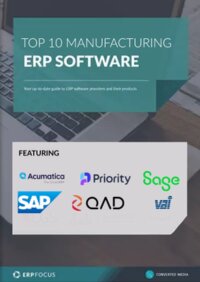
Top 10 Manufacturing ERP Software Comparison
Compare the best manufacturing ERP systems
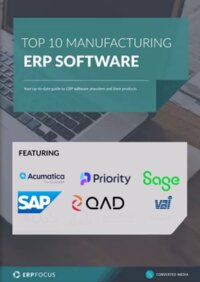
Featured white papers
Related articles
-
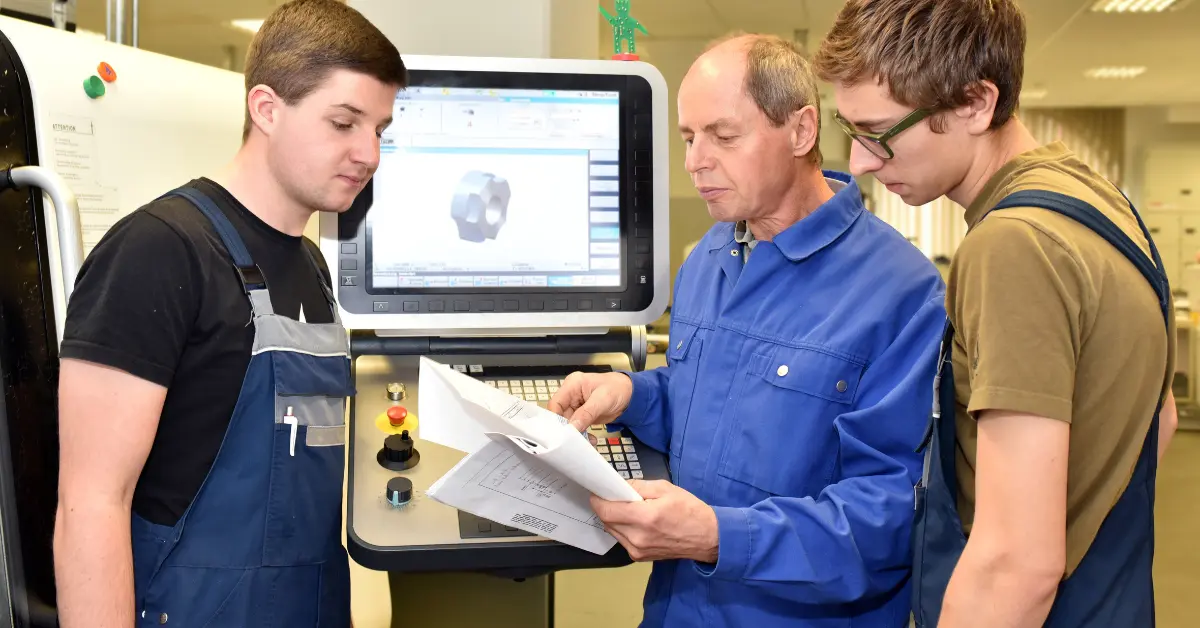
4 training tips for manufacturing ERP success
These four training tips will help your employees get the most out of your new manufacturing ERP ...
-

CMMC Compliance: What Aerospace and Defense Manufacturers Need to Know
Key insights on CMMC compliance, deadlines, and securing DoD contracts with CMMC 2.0 certificatio...
-

Shop floor management: 4 ways ERP can improve efficiency
Learn about the shop floor efficiencies that can be realized through the implementation of manufa...


